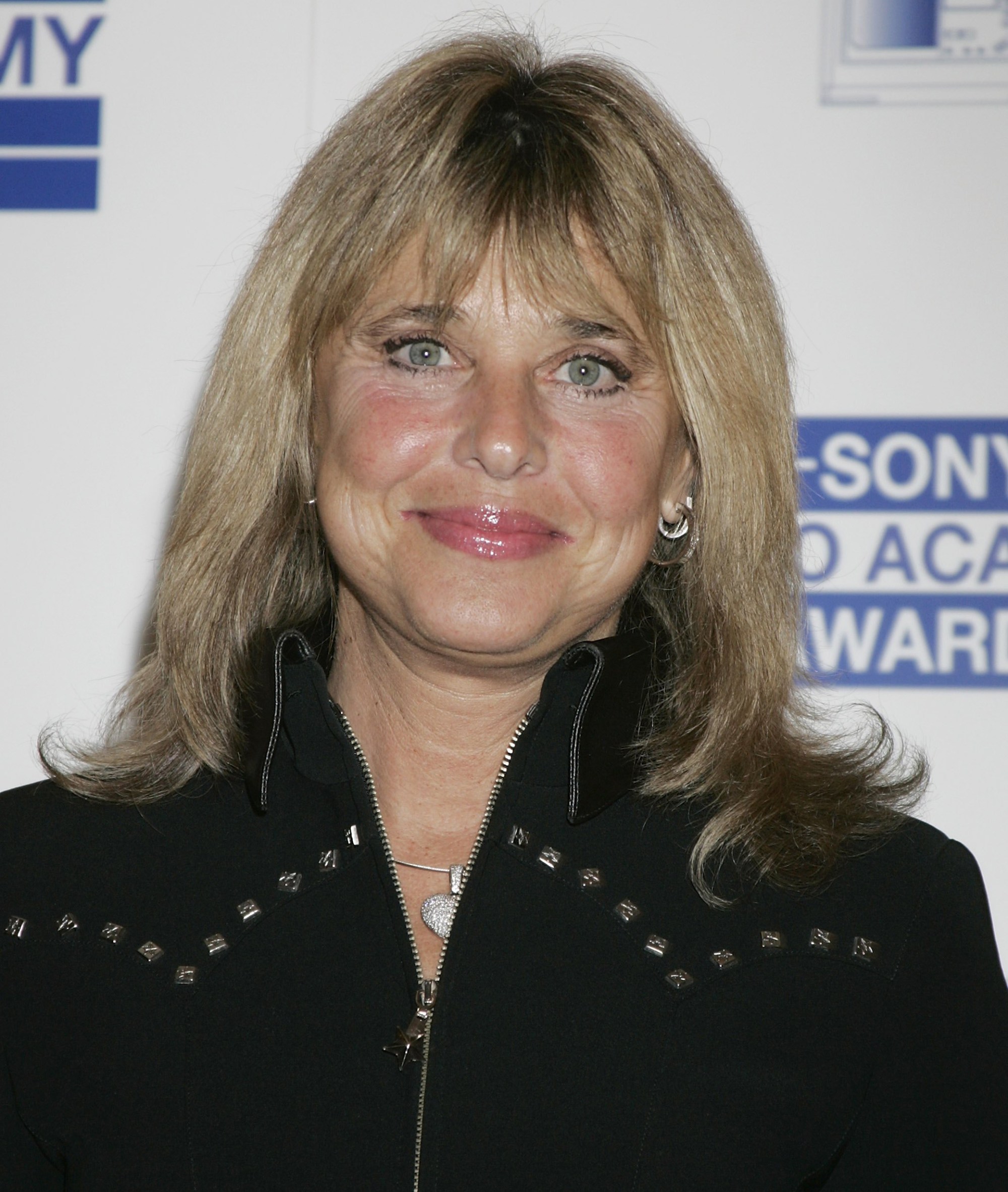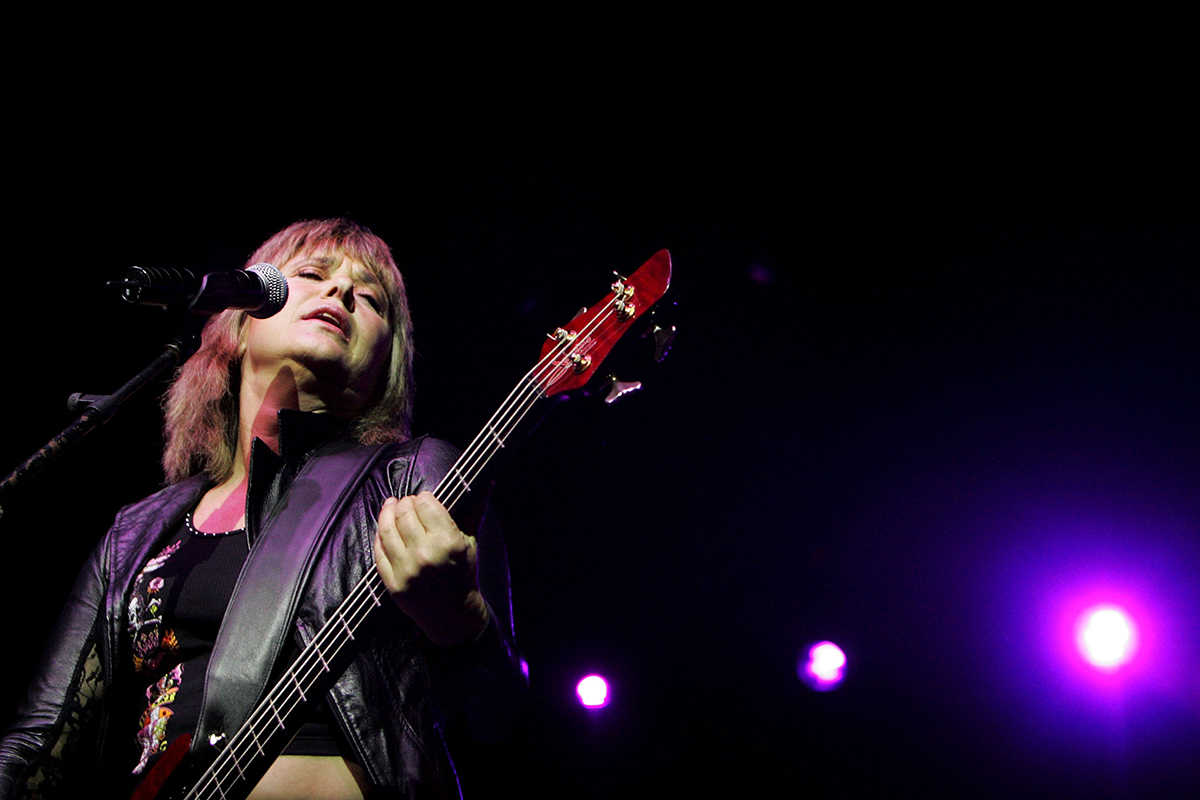
- Industry
Suzi Q: Still Rocking After All These Years
“I do not compromise for anybody. Still don’t.’ She is rock’n roll’s female trailblazer. She has sold 55 million records. She is the rockstar the young Joan Jett desperately wanted to be. Suzi Quatro’s career is unique and more importantly, she’s still here. At 70.

Suzi Quatro performs on stage at the Enmore Theatre on September 29, 2007 in Sydney, Australia
Getty Images
A new documentary, directed by Liam Firmager and titled Suzi Q, chronicles the star’s life from her musical beginnings in her hometown of Detroit where she founded an all-girl band with her sisters, Patti, Nancy, and Arlene, called Suzi Soul and the Pleasure Seekers, to her enduring success as a solo singer, actress, and musical star. Her first hit single “Can the Can” was number 1 in the charts in most European countries and Australia, in 1973. She followed that up with “Devil Gate Drive” and later with “48 Crash”, “Daytona Demon”, ‘The Wild One’, and ‘Your Mamma Won’t Like Me’. In 2010, she was voted into the Michigan Rock and Roll Legends online Hall of Fame. It is telling that her biggest and only success in the US was her duet with Smokie lead singer Chris Norman, “Stumblin’ In” which made it to number 4 on the Billboard charts. The same song never quite connected with audiences in Europe, though.
In America, she became famous as an actress when she was hired to play Leather Tuscadero opposite Henry Winkler on Happy Days. Garry Marshall, who produced the hit TV show, hired her without an audition after spotting her poster on his daughter’s bedroom wall. In 1986 she played Annie Oakley in a London production of Annie Get Your Gun.
If you were a teenager in the 1970s, you could not avoid her. Unless you lived in America. Interestingly, the rock icon who conquered the charts from Australia to Europe never quite found the same adoration in her home country. For the rest of the world, the girl who started playing the bongos in her father’s jazz combo at the tender age of seven became the embodiment of unleashed female power.
“Before I did what I did, we didn’t have a place in rock ‘n’ roll. Not really. You had your Grace Slick and all that, but that’s not what I did. I was the first to be taken seriously as a female rock ‘n’ roll musician and singer. That hadn’t been done before. I played the boys at their own game. For everybody that came afterward, it was a little bit easier, which is good. I’m proud of that. If I have a legacy, that’s what it is. It’s nothing I take lightly,” she said in an interview a few years back.
At 4’11” she inspired countless female musicians and young girls still looking and fighting for equality and acceptance. At the same time, the first female bass player that broke out as a singer was ridiculed by US rags as “a female Elvis Presley copy in black leather”. Elvis himself, however, was so impressed by her that he invited her to Graceland. She declined, telling him she was busy: “In all honesty, I was not ready to meet him”, she says. This story tells us a lot about her. She made her way unapologetically, never intimidated by someone else’s power or fame. In the testosterone-driven world of 70s rock’n roll and despite her diminutive physical stature, she never became a victim. She never got metoo-ed and she was never embroiled in any scandal including drugs, which she abhors. She gained the respect of many peers and contemporaries, most notably Alice Cooper for whom she opened many concerts: “A lot of girls had tried to be Suzi Quatro,” says Cooper in the documentary. “But when it’s in the DNA, you can’t fake that.”
In her personal life, she was married to her long-time guitar player Len Tuckey from 1976 to 1992, with whom she has her two children Laura and Richard. One year after her divorce she married her current husband, the German concert promoter Rainer Haas. They split their time between their homes in Essex, UK and Hamburg, Germany. She still tours – and will continue to after Covid has left the building – and her stamina is incredible. She has never ceased to be an icon in Europe and still sells millions of records in Australia.
The words that music biographer Philip Norman wrote about her decades ago still resonate: “Of all-female rock singers, she appears the most emancipated: a small girl leading an all-man group in which she herself plays bass guitar. The image is of a tomboy, lank-haired, tight-bottomed, and tattooed. A rocker, a brooder, a loner, a knife-carrier, a hell-cat, a wild cat, a storm child, a refugee from the frightened city of Detroit”. Her sisters never forgave her for breaking away from the band and pursuing an independent music career. Their resentment is still palpable in the interviews they gave for the documentary. This pains her to this day and almost as much as the tape her parents sent her one Thanksgiving when she was already living in England where they voiced their disappointments with the daughter that had left the family and her siblings’ own musical aspirations behind, to follow her dream.
On the other hand, given the manner in which women have been socialized to sublimate their dreams while stoking the success of others, the courage not to bow to that pressure may be the lesson she passes to the next generation. She always knew what she wanted and considers it wrong to not fulfill one’s destiny.
We can all learn from that mantra.